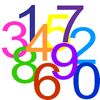Skip over navigation

What Makes a Good Mathematician?
Learning to Collaborate
Learning to Be Systematic
Learning to Generalise

Or search by topic
Number and algebra
Geometry and measure
Probability and statistics
Working mathematically
Advanced mathematics
For younger learners
Becoming a Better Mathematician

Becoming a Better Mathematician
In this feature, we invite you to think about What Makes a Good Mathematician. Once you've reflected on your mathematical strengths and weaknesses, you might like to have a go at the problems in each of the sections below, which challenge you to collaborate, be systematic, and find opportunities to generalise.
What Makes a Good Mathematician? Age 5 to 16
Age 5 to 16
In this article for students, we outline what we believe are the five key ingredients that make a successful mathematician. Where are your strengths? What might you want to work on?
Learning to Collaborate Age 11 to 16Challenge Level 


Age 11 to 16
Challenge Level 





These problems demonstrate the value of approaching problems in more than one way
Learning to Be Systematic Age 11 to 16Challenge Level 


Age 11 to 16
Challenge Level 





These problems encourage you to work systematically
Learning to Generalise Age 11 to 18Challenge Level 


Age 11 to 18
Challenge Level 





These problems give you lots of opportunities to generalise
You may also like
Patterns in Number Sequences
These resources are designed to get you thinking about number sequences and patterns.

